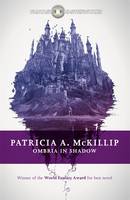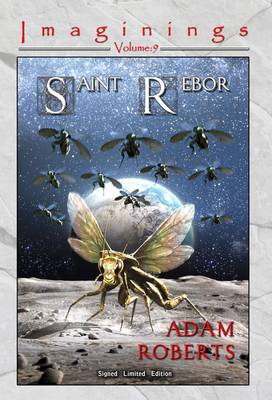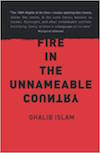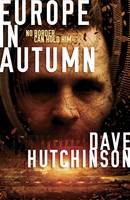 The Strange Horizons book club on Patricia A. McKillip’s Ombria in Shadow is now live; go and take a look. We had a really good discussion, which looks set to continue in the comments; I hope the SH book club goes on to be a regular and reliable source of interesting discussion about books.
The Strange Horizons book club on Patricia A. McKillip’s Ombria in Shadow is now live; go and take a look. We had a really good discussion, which looks set to continue in the comments; I hope the SH book club goes on to be a regular and reliable source of interesting discussion about books.
This experience (amongst other things) has set me thinking about reading and what I want to get from it. I’m not the only blogger who’s been doing that sort of thing recently – see this post by Simon Savidge, for instance. Now, I’m happy enough to be a prolific – and relatively fast – reader; but Simon’s points about reading mechanically, in a way that does a disservice to a book and yourself resonated with me. This is not necessarily an issue of quantity: for me, it’s a matter of what I want reading to be.
The truth is, in the last few years I’ve read too many books which have essentially done little more than pass the time along, which is not what I want. The most powerful books I read change my world, get under my skin, inspire thoughts that I have to write down and share – that’s what I want.
Of course there will be ups and downs. The odd makeweight book is inevitable, especially when you like to take chances in your reading. Equally, I’m not saying that every good book has to scale the highest of heights to be worthwhile. But there have been too many times when I’ve knowingly kept on reading something just for the sake of it; or when I’ve read with more of an eye for having something to post on the blog than for why I’m reading. It shouldn’t be that way.
So here’s a resolution to be more selective in what I read and keep reading.There may be fewer posts on the blog, but maybe not; I expect I will read fewer books, but shouldn’t feel short-changed for that. After all, reading is not a competitive sport, not even if it’s just competing against yourself. Rather, it’s a journey of discovery, and the point of this blog was to share that discovery – so that’s what I aim to keep in mind.
Like this:
Like Loading...







 Today I have a new review up at Strange Horizons, looking at The World of the End, the debut novel by Ofir Touché Gafla (translated from the Hebrew by Mitch Ginsburg).Gafla’s book is the story of one man’s journey through an unacceptably strange afterlife, searching his late wife, whom he thought would be there to meet him. As you’ll see from
Today I have a new review up at Strange Horizons, looking at The World of the End, the debut novel by Ofir Touché Gafla (translated from the Hebrew by Mitch Ginsburg).Gafla’s book is the story of one man’s journey through an unacceptably strange afterlife, searching his late wife, whom he thought would be there to meet him. As you’ll see from
Recent Comments